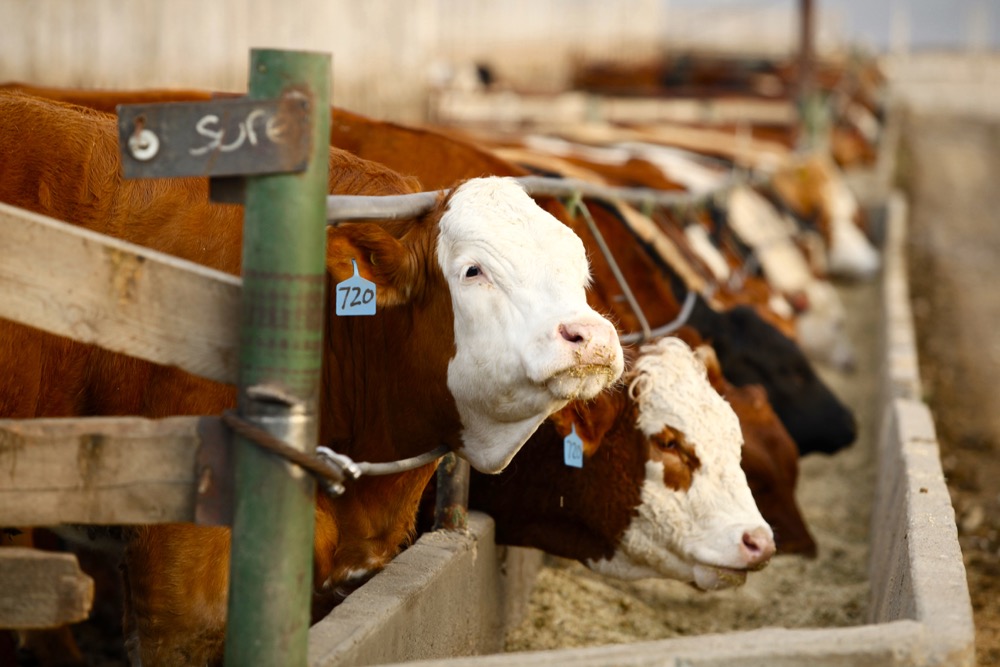Canada remains “cautiously optimistic” that the U.S. government will repeal its country-of-origin labelling (COOL) law before the Canadian and Mexican governments impose retaliatory tariffs.
Federal Trade Minister Chrystia Freeland, speaking Wednesday from Nairobi on a conference call with reporters, said she was “not going to go into hypotheticals” about Canada’s next move if an omnibus appropriations bill including a repeal for COOL does not pass the U.S. Congress.
“The bottom line is, (COOL) must be repealed or we will retaliate,” Agriculture Minister Lawrence MacAulay said on the same call. However, neither he nor Freeland promised any deadline by which Canada would seek retaliation, as recently allowed by the World Trade Organization (WTO).
Read Also

U.S. livestock: Cattle strengthen Tuesday
Cattle futures on the Chicago Mercantile Exchange were stronger on Tuesday, with cold temperatures hitting the northern U.S. Plains and…
Canada will officially be in a position to impose tariffs starting Friday, the Canadian Cattlemen’s Association noted in a separate release Wednesday, adding “we hope that awareness of this fact in Washington will be useful to avoid retaliatory action becoming necessary.”
The COOL repeal is tucked in an omnibus bill meant to continue funding for the U.S. government through September next year, authorizing US$1.15 trillion in U.S. government spending.
The omnibus bill is now due for a vote in the U.S. House of Representatives on Friday, but faces resistance from conservative Republicans.
Freeland cautioned the COOL repeal is in the midst of a “very fast-moving, very unpredictable” political situation, but the Canadian government remains “encouraged by the steps we’ve seen.”
Freeland was in Kenya to mark the wrap-up of negotiations on expansion of the WTO’s Information Technology Agreement (ITA), which is expected to eliminate tariffs on 201 information and communication technology and related products.
Asked about the COOL repeal language — compared to the terms of a separate repeal plan the House of Representatives approved in June — she said the omnibus bill’s language is “very fresh to us” and she and her office had only had a couple of hours to review it, but added “we are happy with the language.”
Reuters on Wednesday quoted Paul Ryan, the speaker of the House of Representatives, as saying he was confident of a bipartisan compromise and that there is “no reason to believe we’re going to have a shutdown” as seen in a 17-day crisis in 2013 when federal workers were furloughed.
However, Reuters on Wednesday also quoted Rep. Jim Jordan, an Ohio Republican, as saying the so-called Freedom Caucus and other conservative Republicans would vote against the spending bill because it failed to include provisions to tighten U.S. screening of Syrian refugees, address national security concerns and deny funding to reproductive health services organization Planned Parenthood.
“The omnibus, I think, has real problems, not just with Freedom Caucus members, but with lots of Republicans,” Jordan told Reuters.
The White House, meanwhile, reacted positively to the overall omnibus bill, saying it met President Barack Obama’s priorities without including “hundreds of needless ideological” extra measures.
Congress, the combined U.S. House and Senate, was expected on Wednesday to pass a stop-gap funding bill that would give it until Dec. 22 to complete work on the omnibus package. Without the temporary bill, federal funding for a range of government programs is due to expire at midnight. — AGCanada.com Network/Reuters















